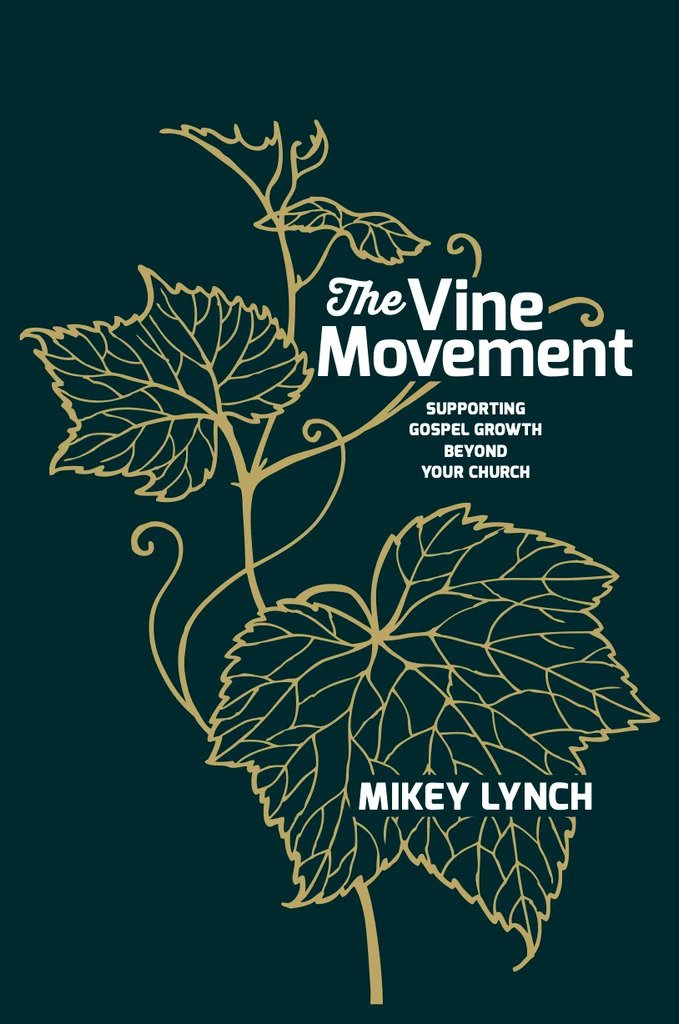Any Christian involved in parachurch ministry understands the dance that is between their own ministry and the ministry of the local church.
In the rhythmic shuffle of church calendar events there are camps, picnics, training days and, now, livestreams and online groups. So where do parachurch organisations fit in and what benefit can they be to their local church?
As a staff member at the parachurch organisation, City Bible Forum, I’m acutely aware of the awkwardness of this dance. Churches are busy. We want to make sure we aren’t just crowding the dancefloor—but making the steps easier.
Mikey Lynch is well practised in this dance too. He belongs to his local church; is a founding member of two Church Planting networks, Geneva Push and Vision 100; a founder of New Front Door, an IT support agency for churches; Campus Director for AFES at the University of Tasmania; and the new Editorial Director for TGCA.
In his new book, The Vine Movement, Lynch helps us reflect on the dance using an analogy borrowed from Tim Keller—that of an ecosystem:
…a gospel ecosystem is made of interdependent organizations, individuals, ideas, and spiritual and human forces … When all the elements … are in balance, the entire system produces health and growth … Such an ecosystem, Keller writes, includes not only “church planting and church renewal movements” but also “a complex set of specialty ministries, institutions, networks, and relationships.[1]” (10)
In the Vine Movement, Lynch proposes a symbiotic relationship between parachurch and church: church and parachurch working together to end the awkward dance.

The Vine Movement: Supporting Gospel Growth beyond your Church
Mikey Lynch
The Vine Movement: Supporting Gospel Growth beyond your Church
Mikey Lynch
Christians have always known that the urgent, life-changing message of Jesus must be taken to the ends of the earth. But how should this happen not only through the local churches, but also through other ministries? What is a ‘parachurch ministry,’ and how should churches and parachurches relate to each other and work side-by-side for the glory of God?
Pastor, parachurch leader and author Mikey Lynch dives deeply into these and many other questions that will be of vital interest to every mission-minded Christian.
For this reason, this book is not niche but a vital clarifying tool for lay leaders, church leaders and parachurch ministry staff. It’s structured so you can jump straight to what’s relevant to you and your volunteering, pastoring or leadership roles. However, it also provides a deep reading of history with case studies that illustrate the relationship between church and parachurch. Here are three questions The Vine Movement addresses.
1. Why should lay leaders get involved in a parachurch ministry?
The second half of Lynch’s book deals with practical implications of the theological distinctions between church and parachurch. In this section, Lynch argues that parachurches may exist as niche but important expressions of Christ’s mission in a complex world:
Even if the parachurch organization we lead is not primarily about evangelism or Christian discipleship, we are still implementing our mission in the context of this larger flow of salvation history. (129)
It is this freedom from having to fulfill the whole mission of “church” that enables parachurches to offer specialised ministries that might otherwise be seen as outside “the church’s” scope.
Parachurches aren’t expected to provide sacraments, formal weekly worship or denominational distinctives. For example, because of their limited scope, they can excel in caring for people, communicating the gospel in specific contexts, or providing specialised training.
Parachurches are able to focus on doing fewer things well due to their targeted mission focus.
Lay Leaders with specific gifts such as finance, art, counselling, evangelism with colleagues, counselling or caregiving can find their gifts used more directly for the kingdom through a specialised parachurch ministry. If their local church does not have a specific place for their gifts, many parachurches need them and can see their value as part of the kingdom.
2. Why should church pastors partner with parachurch ministries?
Smaller churches gain a great deal from partnering with parachurch organisations to fill gaps they are unable to fill. However, some churches may feel threatened by congregation members being involved in parachurch groups. For one, what if their calendar conflicts with our already complicated year on a page? Parachurches can be “circling sharks just waiting to devour more of your members’ time, energy, enthusiasm and financial resources.” (139)
But this isn’t how we should view parachurches. We need a bigger vision of gospel growth:
We must be exporters of trained people instead of hoarders of trained people … Our view of gospel work must be global as well as local: the goal isn’t church growth … but gospel growth. (136)
Lynch’s argument for prioritising gospel growth over local church growth is one that may feel challenging to some church leaders. However, building functional ministry relationships with like-minded parachurch ministries can also have ongoing benefits in sharing human and knowledge resources; provide specialized training for congregation members; and allow churches to maintain their focus on biblical teaching, preaching and pastoral care. Ultimately, it’s not about what we’re doing, but what God is doing. And God often uses parachurches:
Far from being bloodthirsty sharks, at their best parachurches can be life rafts, radios, pontoons, lighthouses, transport ships, cruise liners, aircraft carriers, ice breakers, sea planes and fishing boats. They can support, enhance and extend local church ministry in wonderfully positive ways. (140)
Churches may find it hard to care for the youth of their church, those with disabilities, or people struggling with mental health, addiction or other social needs. But parachurch organisations often have the capacity and expertise to help—either equipping churches or partnering with pastors in caring for their congregation. Similarly, churches may not have the expertise or time to train their members in evangelism, apologetics or theologies of work, but some parachurch bodies focus on these skills exclusively. Rather than “fighting over who gets the biggest piece of pie,” (144) we must be concerned with growing God’s kingdom—no matter whose kitchen the cooking’s happening in.
3. How can parachurch ministries ensure they are contributing to the gospel ecosystem?
The Vine Movement provides a framework for assessing whether a church or parachurch organisation is doing the work it has set out to do. Unless we see things clearly, the dance is not so much awkward as it is territorial:
Where churches and parachurches overlap with each other, this fuzziness can produce a great deal of tension and suspicion. Each one can fail to listen to, learn from and respect the unique strengths and insights of the other. (141)
Every parachurch should go through the process of assessing whether their work: (a) could be done by a church; (b) replicates something done by another parachurch; or (c) is experiencing “mission creep” by trying to do ministries beyond their scope.
Since parachurches tend to be run by a board or committee, it’s much easier to adapt to cultural or organisational change, ensuring the parachurch organisation continues contributing to the gospel ecosystem. Recognising your parachurch ministry’s specific value may also help coordinate the dance when inviting churches to partner with you in prayer, gospel ministry, or support raising.
Overall, The Vine Movement is a deep volume that envisions a collaborative and thriving gospel ecosystem. It affirms the spiritual authority of the church while demonstrating the ways parachurch equips the church in vital and unique ways. Now it’s up to us to tap into them.
[This article was submitted, edited and posted prior to author Mikey Lynch’s commencement of full editorial duties with TGCA and without his involvement. —Eds.]
[1] Keller, Tim (2012) Center Church: Doing Balanced, Gospel-centered Ministry in Your City, Zondervan















